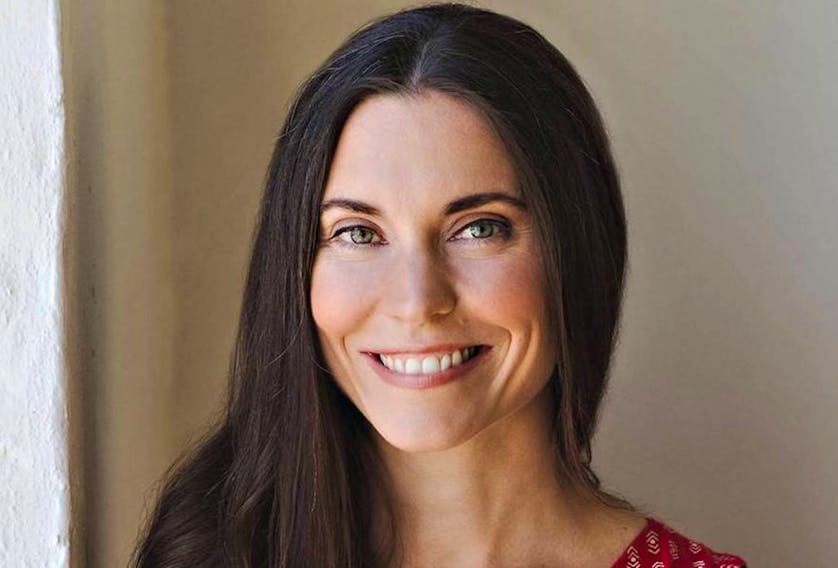ST. JOHN'S, N.L. — There’s been criticism and even dismissal of the People’s Recovery’s initial pitch as it launched an alternative to the Dame Moya Greene-led Premier’s Economic Recovery Team (PERT) this week, but also lots of encouragement and eyeballs on the work of a volunteer group that’s about as inclusive as you can get.
The People’s Recovery will have its own report ready as an alternative to Greene’s eventual document, but launched its website and released two fact sheets this week, the effort of a coalition of more than 60 organizations and individuals from across the province.
These are people who have been getting together for a few months, carving precious time from family and work commitments because they care about the province’s precarious fiscal situation and finding alternative solutions that won’t cause drastic cuts and hardship.
Co-facilitator Angela Carter, a professor of political science at the University of Waterloo, is a Newfoundlander who is an expert on the oil and gas industry, as well as climate change.
She said while the People’s Recovery effort is ambitious, it inspires her and has been a great experience to learn from the perspectives of people around the virtual table.
“This is what democracy is about — to get together, listen to each other, really listen,” Carter said.
Provincewide movement
Those voices include Indigenous, disability, anti-racism and anti-poverty advocates, as well as academics, and people advocating for women, rural Newfoundand and Labrador and the fishery, just to name a few.
Carter said poverty is expensive for governments, as it must fund programs, and creating decent-paying jobs is a solid path to economic stability because it creates a stronger tax base.
The movement began as a few people on Twitter concerned about the looming Greene report.
“It is too hard personally to worry and watch these things happen when I know for a fact when citizens get together they can make change, positive change. … We could wallow in despair and turn away from the problem because it is too scary. But that, I feel, isn’t any way to live a life that is full,” Carter said.
An informal chat led to drawing more people to the virtual table from diverse backgrounds and drafting principles and policy.
“Each week we met and every week the group got bigger,” Carter said.
“It’s a damn sight better than doom scrolling on Twitter.”

Alternative to austerity
Mark Nichols of Fight for $15 and Fairness said he has a problem with the narrative that the only way for the government to dig itself out of a fiscal hole is to slash and privatize.
He wants to be part of a more progressive, inclusive, just future for the province, and says it’s a realistic vision.
Nichols said the important thing is to speak out about what you feel is right.
“The big thing at the end of the day when the PERT report comes out, there’s at least another vision on the table, another way forward on the table,” Nichols said.
The point was to start the dialogue and give citizens and groups a chance to engage, as well as offer tangible proposals, which the government has yet to do, said Russell Willliams, a political science professor at Memorial University.
“There of course will always be criticism and that’s fair enough,” he said of reaction so far to the group’s pitch.
“The situation the province is in is dire, and I think much more dire than the government is willing to admit during this provincial election. The government a year ago wrote a public letter saying they are bankrupt and couldn’t afford to fund public services. So I think a lot of citizens were freaked out by that and want to be part of the process of figuring out what we do next,” Willliams said.
“People are not satisfied by the idea we should leave it to Moya Greene to figure this out for us.”

Hard work for volunteers
Whether the movement can sustain itself is unknown, as it’s a hard endeavour, especially during the COVID-19 pandemic.
“Whatever comes out of it, comes out of it,” Williams said.
Newfoundland and Labrador Federation of Labour president Mary Shortall quit PERT and soon after was drawn into the People’s Recovery.
While PERT ultimately proved to be too secretive and concerning for Shortall, she is excited to be part of a conversation at the People’s Recovery.
“It’s a natural fit for us. … It really is open to anyone who has something to say. … It’s a holistic view of the economy. It’s amazing just to hear the passion,” she said, adding she is also learning from the various voices.
“The dominant narrative in the public has been the only way out of this is to cut your way out of this. We have been saying for a long time there are other alternatives,” Shortall said.

What the political party leaders have to say about the People's Recovery coalition
NDP Leader Alison Coffin: "Certainly it does echo a lot the sentiment you see in the New Democrat platform. A lot of our planks are there. They talk about fair taxation, reforming labour legislation. They talk about a $15 minimum wage — all of these things are things that we believe in. A lot of the things you see here represent reasonable, fair, different perspectives on how we can bring Newfoundland and Labrador through this economic recovery. … This is a way we can do this where it is not in secrecy and it’s not a group of handpicked individuals.”
Liberal Leader Andrew Furey: “As we have always said, we welcome engagement from all perspectives. That applies to this group as well. Members of the Premier’s Economic Recovery Team have a variety of experience and are consulting with a number of stakeholders, including social and community organizations, with hundreds of hours of meetings to date. EngageNL offers an opportunity for public input, and we maintain our commitment to publicly release the team’s reports and consult broadly on any selected recommendations prior to implementation.”
Progressive Conservative Leader Ches Crosbie: “They have a grow-the-economy and create-jobs approach that’s in agreement with what I want to do. I am glad to see them come forward because we need people to take an interest in how we are going to recover. ... It seems that they are doing as a counterpoint or an opposition point to what they think Furey and Greene are doing, which I think they believe is an austerity agenda and cuts agenda. To that extent we are on the same page. The narrative of this coming out during the election is at least they are putting their agenda on the table for people to see and debate, whereas Furey wants to keep his hidden.”
Newfoundland and Labrador Alliance Leader Graydon Pelley: “I haven’t given it the detailed read I would like to and I will over the weekend. My first thought is any time we have people willing to collaborate about the economic recovery of Newfoundland and Labrador, that’s step No. 1. … Collaboration is the key and it’s got to start somewhere. We might not always agree, but collaboration is the key.”
Some People’s Recovery proposals for how to raise revenue
■ Institute wage fairness in order to boost the revenues of lower-income people from personal income tax, HST and other taxes. A $15 minimum wage (and then a living wage) and pay equity for women would boost tax revenues.
■ Create jobs to reduce unemployment by three per cent (to match the Atlantic average), which could boost personal income tax revenues by about $48 million per year, and HST revenues by millions more.
■ Evaluate how the province could institute a potential one per cent HST rate increase (which raises about $110 million to $120 million a year).
■ Implement a 20 per cent luxury tax on the purchase of luxury cars.
■ Increase the marginal tax rate for the top two income brackets (those above $135,432) by two per cent each. This could bring in $42 million per year.
■ Reduce the income thresholds for the top two tax brackets to match Nova Scotia’s thresholds.
■ Introduce a new tax bracket or a surtax for incomes over $1 million.
■ Require that those with high incomes pay at least some amount of tax every year. This is called a “Buffett Tax” after billionaire Warren Buffett, who proposed it.
■ Create a new wealth tax on the richest, which could translate to more than $50 million every year in Newfoundland and Labrador.
■ End the special deal for capital gains income as compared to wage income. This could raise $50 million or more in provincial revenues.
■ Restore the provincial corporate income tax (CIT) rate for large corporations to 17 per cent — to raise about $30 million per year.
■ Create a new higher CIT rate for the largest corporations.
■ Require firms to employ a certain number of people to qualify for the discounted small business tax rate of three per cent, which costs the public purse about $70 million to $90 million per year.
■ Eliminate fossil fuel industry subsidies and establish a system to maximize public revenues from the sale of non-renewable resources (minerals and fossil fuels),
■ Extend the six per cent capital tax on financial institutions to all large corporations.
■ Close loopholes and change the law so corporations (and individuals) cannot use tax havens to avoid paying taxes.
■ Eliminate the provincial corporations Political Contributions Tax Credit.
Total proposed revenues raised: $876 million annually.
Source People’s Recovery https://peoplesrecoverynl.ca









